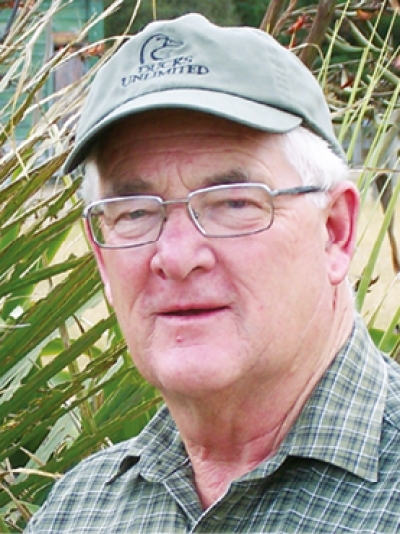Tuesday, 27 February 2018 06:46
From the President
I recently returned from a day looking at some coastal rivers and wetlands in Hawke’s Bay with Regional Council staff. On this occasion the focus was not birds but whitebait, and in particular inanga. Inanga are one of five species of native fish that make up the national whitebait catch. In my region inanga make up about 90 percent of the catch.
So what is the connection with DUNZ?
Inanga spawn amongst the bank side vegetation of the lower reaches of rivers like the Tukituki, Ngaruroro and Tutaekuri at the top of the spring tides, normally during April to June. During the next sequence of high tides the eggs, about the size of a pin head, hatch and wash out to sea and then return to the rivers six months later as the whitebait most of us love eating. Those that avoid capture spend the next year in the river and adjacent wetlands before returning to these very small and critical spawning sites. Like waterfowl habitat, these sites are under threat from many directions and without protection the inanga could locally become extinct.
Habitat protection is the key whether you are a duck or native fish. Our wetland work normally benefits much more than birds.
Keep up the good work. See you at the AGM in Palmerston North 1-2 August.
John Cheyne
So what is the connection with DUNZ?
Inanga spawn amongst the bank side vegetation of the lower reaches of rivers like the Tukituki, Ngaruroro and Tutaekuri at the top of the spring tides, normally during April to June. During the next sequence of high tides the eggs, about the size of a pin head, hatch and wash out to sea and then return to the rivers six months later as the whitebait most of us love eating. Those that avoid capture spend the next year in the river and adjacent wetlands before returning to these very small and critical spawning sites. Like waterfowl habitat, these sites are under threat from many directions and without protection the inanga could locally become extinct.
Habitat protection is the key whether you are a duck or native fish. Our wetland work normally benefits much more than birds.
Keep up the good work. See you at the AGM in Palmerston North 1-2 August.
John Cheyne
Published in
Issue 164
Tagged under

